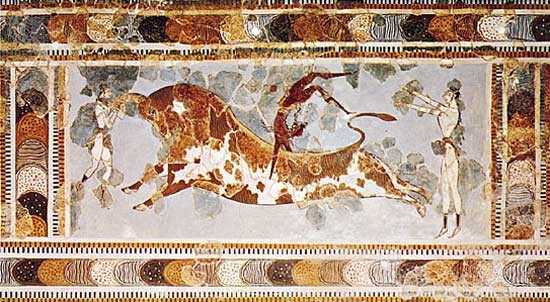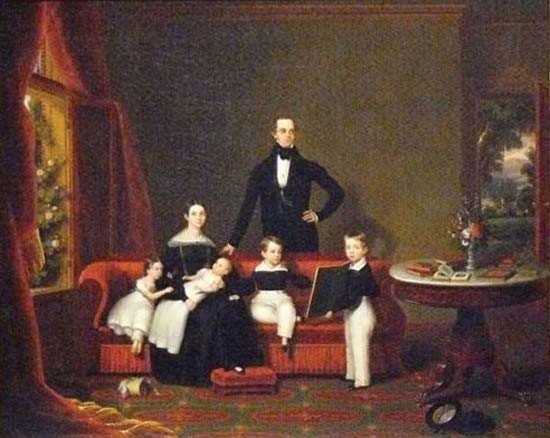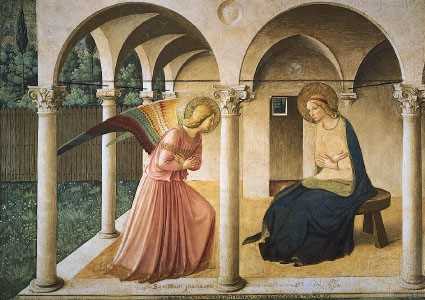Fresco is derived from Italian word which means Fresh. Its a traditional way for painting directly on wall or ceiling. It is the very oldest form of painting medium, commonly find in prehistoric caves and wall decoration durong 16th century. On wall surfaces the method of painting water-based pigments on freshly applied plaster is called as Fresco painting.
The colours, which are made by mixing dry-powder spatula in pure water, dry and set with the plaster to become a permanent part of the wall.
Fresco painting is best for making wall paintings because it lends itself to a monumental style, is useful for longtimes, and has a matte surface.

The Toreador Fresco, Knossos, Crete- 1550 BC, The Toreador Fresco, restored wall painting from the Palace at Knossos, Crete,in the Archaeological Museum, Iráklion, Crete.Art Resource, New York

An Example of Fresco Painting
Process of making Fresco Painting:
Fresco is the most enduring method and consist different process in preparation.
Three consecutive coats of specially prepared plaster, sand and sometime marble dust are trowel on a wall
First two coats are which are applied and then allowed dry and hard set.
Then the artist made prepare drawing which intends to paint after that make outline sketch of the design on the wall and then intends to paint and transfer the outlines of the images on the wall.
Now last step is to apply smooth coat of plaster .
The edges, or joints, of each successive section of fresh plastering are imperceptible
Then the boundaries of this area are confined carefully along counter lines.
When it is rightly prepared then it holds its moisture for many hours.

Fresco by Fra Angelico, The Annunciation, 1438 to 45; in the Museum of San Marco,
New York
When the painter mixes his colours with water and applies them with brush strokes to the plaster, the colours are adsorb into the surface, and as the wall dries and sets, the pigment particles become bound or cemented along with the lime and sand particles. This gives the colours great for long time and resistance to aging.
Rather than a superimposed layer of paint on it, they are an integral part of the wall surface, The medium of fresco makes great demands on a painter’s technical skill, since they must work fast when plaster is wet but cannot correct mistakes by overpainting;
This must be done by using the secco method or on a fresh coat of plaster.
Thanks For Reading!!!